Research
March 1, 2003
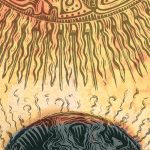
Final countdown
Only 7.5 billion years from now, a burned-out cinder of a planet called Earth will be engulfed by its sun, a bloated red giant that will melt away any evidence that the planet ever existed.
December 1, 2002
Breakthrough research
UW researchers announced a dramatic breakthrough—they were able to insert the missing gene into these defective mice and reverse the effects of Duchenne muscular dystrophy.
September 1, 2002
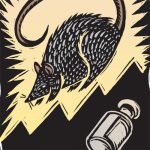
Diabetes discovery
Discovery of a gene that plays a major role in type 1 diabetes in rats and is present in nearly identical form in humans might shed light on the little understood processes of the thymus, a research team including University of Washington scientists announced.
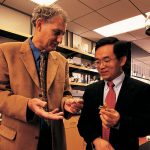
Light speed
By harnessing light instead of electricity to send information, Larry Dalton promises to change the way we work and live.
June 1, 2002
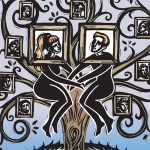
Kissing cousins OK
The genetic consequences of first cousins marrying each other are not as severe as commonly thought, say UW genetics experts.
March 1, 2002
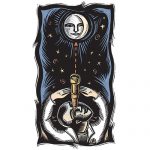
To the moon
Using laser beams, 30-year-old reflectors and 21st century computing power, UW scientists plan to make the most exact measurement of the distance to the moon in history—accurate to the width of a paper clip.
December 1, 2001
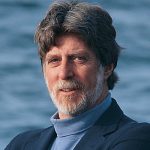
Waterworld
Exploring the ocean floor by remote control could yield breakthroughs in weather forecasting, salmon migration and even earthquake prediction.
September 1, 2001
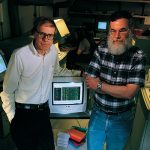
Code control
Scientists may be solving the mystery of the human genome, but the debate is getting hotter over profit motives and the rights to the human blueprint.
June 1, 2001

What lies beneath
It terrified many, but the Nisqually earthquake boosted an effort to map the geology of Seattle, helping prepare the region for the "Big One."
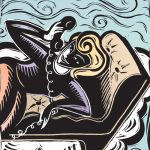
Fighting depression
A UW study found that several brief office visits along with continuing telephone calls or even e-mail can help prevent a relapse of depression.
March 1, 2001
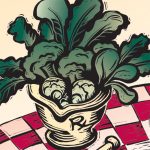
Bitter by nature
When it comes to phytonutrients in vegetables, the demands of good taste and good health may be wholly incompatible.
Brain in focus
A Center for Mind, Brain and Learning to conduct innovative research on early brain and behavioral development has been created at the University of Washington.
December 1, 2000
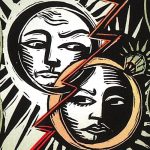
Predicting divorce
Researchers studying the state of American marriages now can predict not only which couples will divorce but also when they will divorce.
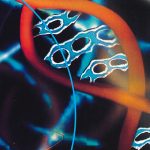
Why cells go bad
Once just a theory, Lawrence Loeb's mutation breakthrough could lead to new cancer treatments and even an unconventional way to stop AIDS.
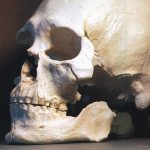
Bones of contention
The saga of Kennewick Man is a volatile mix of race, religion, politics and science, and the UW is right in the middle of it.
September 1, 2000
Heart attack study
Older women are less likely to receive early treatment following a heart attack than older men and are more likely to be assigned a do-not-resuscitate order during their hospital stay, UW researchers reported.
June 1, 2000

Magnets fight malaria
The power of magnets may defeat malaria, a disease that affects half a billion people a year, according to UW Bioengineering Professor Henry Lai.
March 1, 2000

Anti-bacterial armor
Buddy Ratner is leading a UW research team that may have discovered a way to prevent thousands of deaths from hospital-acquired infections each year.
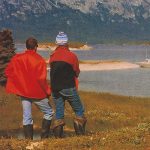
Northern exposure
Students are working alongside UW faculty and graduate students for six weeks, building on a half-century of salmon research.
December 1, 1999
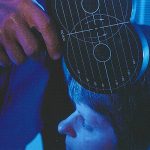
Magnetic relief
Depression's victims sometimes find that drugs and therapy can't help. Soon there may be a new solution — the power of magnetism.